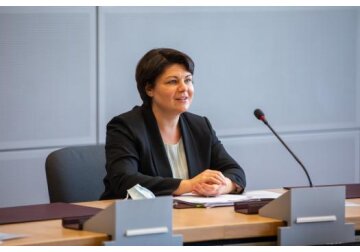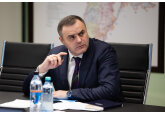
Moldovan Prime Minister Natalia Gavrilita admits that electricity tariffs in the country may rise again.
She said this while speaking on the air of Radio Moldova. According to the head of the government, electricity may soon become more expensive again, because since November 1, after the reduction of natural gas supply, the Moldovan Power Plant has stopped delivering electricity to the right bank of Nistru River, and right bank Moldova was forced to make up for its deficit in foreign markets, including Romania, buying it at a higher price. Prime Minister again urged citizens to save energy resources, noting that the price of electricity and the size of tariffs will largely depend on this. According to her, a price that people will not be able to afford is one of the most "gloomy" scenarios developed by the government in the energy crisis our country is experiencing. "We have different scenarios. I have to say that 10 lei is too high a price. Our scenarios show a slightly lower price. I don't want to speculate on what the price can get to, because the government is working every day to find better contracts. We are very grateful to the companies and the Romanian government, because so far we have contracts with Romania for small quantities, but with a limited price. This was a very important decision for our citizens. We are trying to find additional contracts at this price. At the moment, we buy significant amounts of electricity in Romania in the electricity market," Natalia Gavrilita said. The head of the Cabinet of Ministers urged to save energy resources. "We urge everyone to save money, because it matters not only for the pockets of businesses and families, but also for how much the tariff will increase in the future. The more we save, the lower the tariff will be and the less the state will spend on compensation," Prime Minister added. According to Natalia Gavrilita, the Moldovan government is still negotiating the resumption of electricity supplies from the Moldovan Power Plant. However, the possible agreement, according to Prime Minister, should primarily take into account the interests of citizens. "I am always ready to return to negotiations on certain aspects. But when we consider that it is not an agreement in the interests of citizens, we will not do it," Natalia Gavrilita said. In the context of the crisis that our country is experiencing in the field of electricity, Prime Minister said that in the future it will be possible to carry out blackouts during peak hours. The government is also considering the possibility of adjusting the tariff for electricity consumed during peak hours or, among other things, a return to online education. //04.11.2022 - InfoMarket







